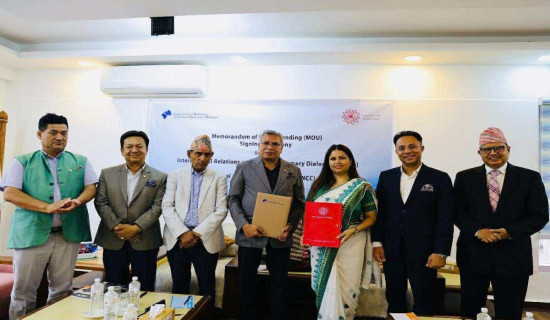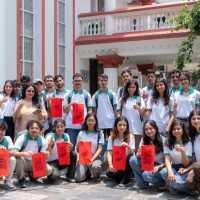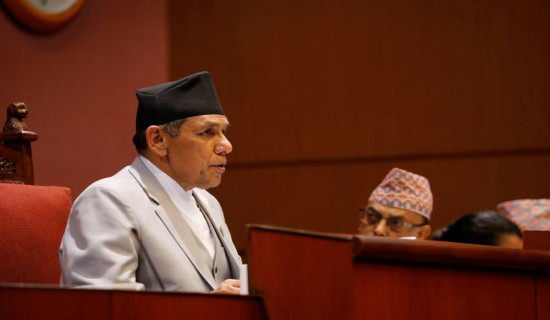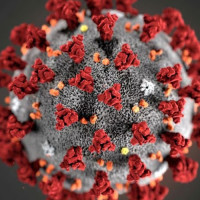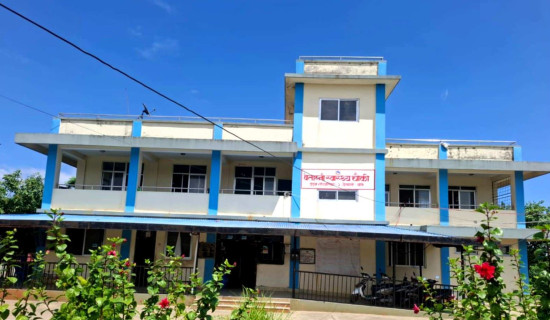- Tuesday, 1 July 2025
Balkhu River gets Nepal’s first trash boom to combat river pollution
By A Staff Reporter,Kathmandu, May 21: In a noteworthy move towards curbing river pollution in Nepal, a trash boom, a floating barrier designed to intercept plastic and solid waste, has been installed for the first time in the country along the Balkhu River, a major tributary of the Bagmati River.
The initiative, under the ‘PLEASE’ Project, is led by the Centre for Integrated Urban Development (CIUD) in collaboration with Kirtipur Municipality-1 and Kathmandu Metropolitan City-4, Kalanki, in front of the Land Revenue Office.
The trash boom was reintroduced on April 17 with the primary objective of reducing plastic and solid waste entering the river system, according to Nabin Bikash Maharjan, team leader of the project and Executive Director of CIUD.
He said that the project aims not only to physically block waste from flowing downstream but also to raise awareness among local communities, especially those residing near rivers, about the environmental impact of indiscriminate dumping.
“The trash boom serves as a visible reminder of the consequences of careless waste disposal,” said Maharjan. “Waste collected at the boom is removed by a private waste management company. Recyclables are sent for processing, while non-recyclable materials are safely transported to a landfill site,” he said while talking to The Rising Nepal, on Tuesday.
Since its installation, the trash boom has intercepted over 512 kilograms of plastic waste, all of which has been directed toward recycling facilities.
Additionally, the cleanup process has involved the removal of seven decomposed carcasses of dogs and cats, 20 kilograms of metal and more than two metric tonnes of mixed waste.
According to Kirtipur Mayor Krishna Man Dangol, the Balkhu River, which flows to Kirtipur through Kathmandu Metropolitan City-14 before merging with the Bagmati River, is a vital waterway. He emphasised the environmental significance of this effort:
“Surface-level plastic pollution has been a persistent issue. This initiative will contribute substantially to river cleanliness, biodiversity conservation, and the ecological restoration of this crucial water source. Although still in a trial phase, we hope to replicate this model in other locations once this stretch is cleaned.”
Padam Thapa, Director of local cleaning partner Neat Clean Green Nepal, noted that the project not only tackles waste but also instills responsibility at the grassroots level.
“This system collects surface-floating plastics for recycling and proper management. The initiative encourages both municipal bodies and the community to take ownership of waste management. We have conducted this operation voluntarily, believing a cleaner river leads to a healthier environment for everyone.”
Maharjan said that the initiative is expected to have a long-term impact, not just in environmental restoration but also in transforming public behaviour by reducing waste at its source.
As part of the campaign, the Kathmandu Metropolitan City's Environment Management Department has announced a mass cleaning event at 7:00 am on Wednesday, involving sanitation workers and local volunteers.
“If the local residents become more conscious and stop dumping waste into rivers and public spaces, our city would be cleaner,” Maharjan concluded, “such efforts will ultimately help us realise the vision of a cleaner and healthier capital city.”



